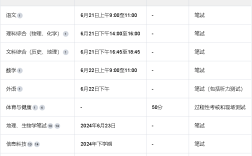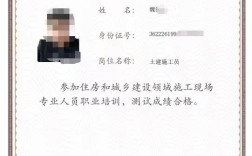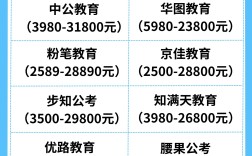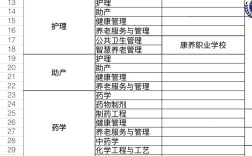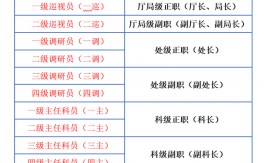初三英語作文題目最經(jīng)常考2024
以下是2024年初三英語作文題目中最經(jīng)常考的一些熱點(diǎn)話題:
1. AI人工智能:涉及人工智能在生活中的應(yīng)用,以及它帶來的便利和可能的問題。
2. 情緒調(diào)節(jié):討論如何管理和調(diào)節(jié)情緒,保持心理健康。
3. 全民閱讀:探討閱讀的重要性和如何推廣全民閱讀。
4. 傳統(tǒng)文化:討論中國(guó)傳統(tǒng)文化的價(jià)值和如何傳承。
5. 校園欺凌:描述校園欺凌事件,表達(dá)感受,并尋求建議。
6. 文化旅游:記錄參觀歷史文化名城或景點(diǎn)的經(jīng)歷和感受。
7. 大學(xué)生就業(yè):討論職業(yè)規(guī)劃和為就業(yè)所做的準(zhǔn)備。
8. 新能源汽車:討論新能源汽車的發(fā)展及其對(duì)環(huán)境和經(jīng)濟(jì)的影響。
這些話題覆蓋了科技、社會(huì)、文化和教育等多個(gè)領(lǐng)域,是初三學(xué)生在備考英語作文時(shí)可以重點(diǎn)關(guān)注的方向。

初三經(jīng)常考的英語作文題目
初三英語作文題目通常圍繞學(xué)生的生活、學(xué)習(xí)、興趣、社會(huì)現(xiàn)象等話題展開,以下是一些常見的初三英語作文題目:
1. 自我介紹:描述你的個(gè)人信息,如姓名、年齡、學(xué)校、愛好等。
2. 我的家庭:介紹家庭成員及其特點(diǎn)。
3. 我的學(xué)校生活:描述你的學(xué)校生活,包括課程、老師、同學(xué)等。
4. 我的家鄉(xiāng):介紹你的家鄉(xiāng),包括地理位置、文化、特色等。
5. 我的夢(mèng)想:描述你的夢(mèng)想和實(shí)現(xiàn)夢(mèng)想的計(jì)劃。
6. 我最喜歡的科目:解釋你為什么喜歡這個(gè)科目,以及你在這個(gè)科目上的學(xué)習(xí)經(jīng)驗(yàn)。
7. 環(huán)境保護(hù):討論環(huán)境保護(hù)的重要性和你如何參與環(huán)保活動(dòng)。
8. 健康生活:描述健康飲食、運(yùn)動(dòng)等健康生活方式的重要性。
9. 網(wǎng)絡(luò)的利弊:討論互聯(lián)網(wǎng)給人們生活帶來的便利和可能的問題。
10. 一次難忘的旅行:敘述一次特別的旅行經(jīng)歷,包括目的地、活動(dòng)和感受。
11. 我最喜歡的節(jié)日:描述你最喜歡的節(jié)日和慶祝方式。
12. 學(xué)習(xí)英語的重要性:討論學(xué)習(xí)英語的好處和方法。
13. 面對(duì)困難:描述你如何面對(duì)和克服困難。
14. 友誼的價(jià)值:討論友誼在人生中的重要性。
15. 志愿者活動(dòng):描述你參與的志愿者活動(dòng)和你的收獲。
這些題目可以幫助學(xué)生練習(xí)英語寫作技巧,同時(shí)鼓勵(lì)他們思考和表達(dá)個(gè)人想法。在準(zhǔn)備作文時(shí),學(xué)生應(yīng)該注意使用恰當(dāng)?shù)臅r(shí)態(tài)、語法結(jié)構(gòu)和詞匯,以及組織清晰的段落結(jié)構(gòu)。
初三英語常考作文范文
初三英語作文是英語學(xué)習(xí)中的一個(gè)重要部分,它不僅考察學(xué)生的英語表達(dá)能力,還考察了學(xué)生的邏輯思維和組織能力。以下是一些常見的初三英語作文題目和相應(yīng)的范文,供你參考:
1. 我的一天(My Day)
范文:
Good morning! I am Li Ming. I have a busy day every day. I usually get up at 6:30 in the morning. After breakfast, I go to school by bike. School starts at 8:00 am. We have four classes in the morning and Chinese is my favorite subject. We have lunch at 12:00 pm. In the afternoon, we have three classes. After school, I often play basketball with my friends. I go home at 5:00 pm. I have dinner at 6:00 pm. Then I do my homework. After that, I watch TV for a while. I go to bed at 10:00 pm. This is my day. I am busy, but I feel very happy.
2. 我的家鄉(xiāng)(My Hometown)
范文:
My hometown is a beautiful place. It's located in the south of China. There are many rivers and mountains around my hometown. The people here are very friendly and hospitable. They always help each other. The environment is clean and tidy. There are many parks and gardens in my hometown. I can play with my friends in the park on weekends. The weather here is warm and comfortable all year round. I love my hometown very much.
3. 我的夢(mèng)想(My Dream)
范文:
Everyone has a dream. My dream is to become a teacher. I want to be a teacher because I like to share my knowledge with others. I think it's a very meaningful job. To make my dream come true, I need to study hard and get good grades. I also need to learn how to communicate with people and be patient. I believe that if I work hard, my dream will come true one day.
4. 一次難忘的旅行(An Unforgettable Trip)
范文:
Last summer, I went on a trip to Beijing with my family. It was an unforgettable trip. We visited many famous places, such as the Great Wall, the Forbidden City, and Tiananmen Square. The Great Wall is one of the wonders of the world. It's very long and beautiful. I was very excited when I climbed up the Great Wall. We also tasted many delicious foods in Beijing, such as Peking Duck and Jiaozi. I enjoyed the trip very much and I hope to go there again.
5. 我最喜歡的節(jié)日(My Favorite Festival)
范文:
My favorite festival is the Spring Festival. It's the most important festival in China. It usually comes in January or February. Before the festival, we clean our houses and do some shopping. On New Year's Eve, we have a big family dinner. We eat dumplings and watch the Spring Festival Gala on TV. We also set off fireworks and firecrackers. On the first day of the festival, we visit our relatives and friends to say "Happy New Year". I enjoy the Spring Festival very much because I can spend time with my family and friends.
這些范文可以幫助你理解如何組織英語作文的結(jié)構(gòu)和內(nèi)容。記得在寫作時(shí),要結(jié)合自己的實(shí)際情況和感受,使作文更加真實(shí)和個(gè)性化。

 微信掃一掃打賞
微信掃一掃打賞
